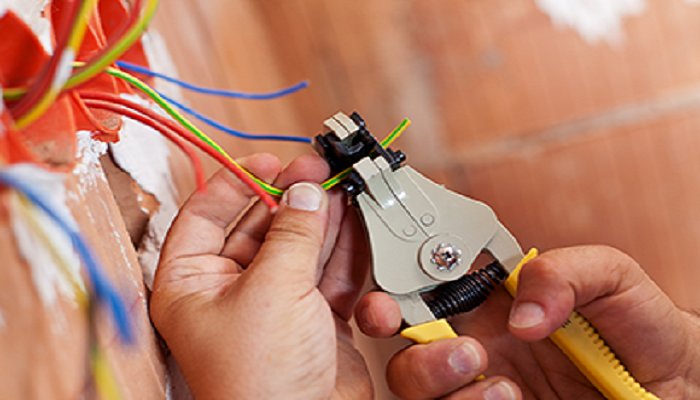Key Takeaways:
- Unraveling the frequency and nature of electrical issues faced by modern homeowners.
- Guidance on initial troubleshooting and recognizing the limits of non-professional repairs.
- Insights into the pivotal role of certified electricians in safeguarding home electrical systems.
- Strategies for implementing preventive measures to reduce electrical risk markedly.
- Advice on executing cost-effective planning and repairs for electrical systems.
- Understanding the significant benefits gained from routine electrical inspections.
- Tips on fortifying your home against future electrical demands.
Modern homes with many electronic devices, appliances, and advanced systems present a complex web of electrical challenges. Homeowners often face various electrical dilemmas, from the simple, daily use of kitchen appliances to deeply integrated systems. The aim is to demystify common electrical problems, offering practical advice and tips on tackling these issues safely and effectively.
Frequent Electrical Concerns in Households
At the heart of many modern conveniences lie potential electrical concerns. Whether it’s the annoyance of flickering lights, the exasperation of frequent trips to reset a circuit, or a wall outlet that no longer accommodates your charging plug, these issues signal the need for a closer examination of the household’s electrical health. The complexities extend to large-scale systems, such as electrical wiring for heating and cooling systems Fort Smith AR, where problems can translate to discomfort and danger.
Troubleshooting Tips for Minor Electrical Issues
Minor electrical inconveniences can often be addressed with basic knowledge of your home’s electricity flow. For instance, understanding breaker panels and the types of light bulbs in your home allows for swift and secure minor repairs. While swapping out a fuse or reconfiguring a tripped breaker may be within the average homeowner’s capabilities, it’s crucial to proceed cautiously. One must always prioritize safety, ensuring that all acts of maintenance or repair are conducted without compromising personal well-being or property.
The Role of Professional Electricians in Home Safety
When home electrical issues transcend the boundaries of simple fixes, the expertise of a professional electrician becomes indispensable. Not just for complex installations or renovations but also for the intricate troubleshooting and repair of everyday systems, the skills of a trained electrician can ensure that your home’s electrical repairs abide by local codes and safety regulations. This is especially crucial when dealing with specialized systems.
When to Seek Expert Electrical Assistance
Identifying the appropriate time to call a professional can be as simple as recognizing when a situation is beyond one’s skill set. Complications such as persistent short circuits, smells of burning from an outlet, or any signs of exposed wiring should immediately propel homeowners to seek expert aid. With potential dangers ranging from electrical fires to serious injury, relying on the deft hands of a licensed professional can provide peace of mind and ensure the safety of household members.
Preventive Measures to Avoid Electrical Hazards
Proactively protecting your home from electrical hazards can reduce risk and prevent future inconveniences or disasters. Proactive steps can include:
- The installation of GFCIs in wet areas of the house.
- Regular inspections of power cords for wear.
- Updating any old or insufficient wiring.
Furthermore, embracing the advancements in home electrical safety, such as AFCI breakers, can safeguard against arcs, a common cause of electrical fires. Knowing and applying these preventive strategies can create a robust environment where electrical safety is paramount and ingrained in the household routine.
Cost-Effective Solutions for Electrical Repairs
Electrical problems require attention and often resources, but they need to avoid creating financial pressures if managed adeptly. Crafting a plan for upkeep and emergencies by setting aside funds or exploring home warranty options can provide appropriate financial buffers. Additionally, understanding the lifespan of critical components of your home’s electrical system can inform when to plan for replacements before failures occur, thus managing repair costs proactively rather than reactively.
Understanding the Importance of Regular Electrical Inspections
An often underappreciated aspect of home maintenance, regular electrical inspections conducted by a certified technician can help preemptively identify potential issues. Neglecting such inspections could leave your home vulnerable to electrical malfunctions that could have been easily averted. Although these professional assessments have an associated cost, the return on investment is a secure, efficient, and sound electrical foundation for your household.
Future-Proofing Your Home’sHome’s Electrical System
As home technology evolves and energy demands increase, it is essential to ensure that your home’s electrical system keeps pace. Strategies for efficiently managing this progression include gradual upgrades conforming to the latest safety standards, considering energy-efficient appliances, and looking into renewable energy options. Whether integrating more innovative home automation systems or ensuring compatibility with electric vehicle charging, planning your home’s electrical advancements will ensure readiness for tomorrow’s electrical demands, securing functionality and safety.
Understanding and dealing with the electrical issues presented by modern homes can be a manageable prospect. By staying informed, taking preventative measures, and knowing when to consult a professional, homeowners can confidently navigate the complexities of their home electrical systems. Should you seek in-depth information on safeguarding your home, don’t hesitate to consult authoritative resources, such as those provided by the National Fire Protection Association and the insights on the electric grid from the U.S. Department of Energy.
